Fatima Payman, Kate O'Connell, Domain names & Irish Elections
Reports have emerged showing that Ireland's new parliament, the Dáil, has a lower proportion of women than any other parliament in western Europe.
That is despite the fact that Ireland is one of the few countries that has quotas for female candidates. Do quotas really work the way they are supposed to?
In a previous blog post, I explained how I acquired the domain names of rival candidates. A similar case was reported in the UK elections.
Looking at the list of domains in my own portfolio, we can exclude the names of two male candidates from other districts, AlanShatter.com (former Justice Minister and prominent Israel supporter) and GerryHutch.com (Ireland's most notorious gangster) as they were only acquired for novelty value and they were not in the district I contested. Does anybody lose any sleep over the lack of female bank robbers?
Out of the six candidates who failed to acquire their domains in Dublin Bay South, three were women ( Kate O'Connell, Brigid Purcell and Emma Blain) and the other three were men ( Jim O'Callaghan, Nick Delehanty and Chris Andrews (Sinn Féin)). In other words, there was no discrimination or favoritism on the basis of gender. A perfect 50/50 gender balance was achieved in this domain name acquisition exercise. Does that mean it complies with election rules?
From Senator Fatima Payman to Kate O'Connell TD
The status of women in politics is an incredibly serious issue. It is fascinating to look at the coincidences between the cases of Senator Fatima Payman in Australia and Kate O'Connell, a former TD turned independent candidate in Ireland.
Kate O'Connell was elected as a candidate for the Fine Gael party in 2016. In 2024 the party proposed to run her as their second candidate behind a man. They still wanted to include her name as people know her well in the region and they needed to have a female candidate to comply with the gender quota.
While O'Connell was offered the demotion to second candidate status, Fatima Payman was proposed as the third candidate on the Labor ticket for the state of Western Australia. Diversity politics in our national parliaments is hardly any better than the controversies around diversity in free software organizations.
Despite her previous success, O'Connell was offered the chance of being elected as second candidate in a district with four seats. Payman was offered the even more remote chance of being elected third candidate in a ballot for six seats. Both ballots use proportional representation while Australia's system also has group voting tickets and Ireland doesn't.
O'Connell rejected the demotion to second candidate status, resigned from the party and ran against them as an independent. Fatima Payman, on the other hand, hadn't been elected before and she never expected to be elected as third candidate. Nonetheless, the preference transfers worked in Payman's favor and she scraped across the line, giving the ALP three out of six seats in an election where gender was a major issue. Incidentally, Brittany Higgins is also from Western Australia.

The ALP ran Payman as the third candidate in the hope of attracting minority votes, including immigrants and women. They hoped these votes would shore up support for the first two candidates on the ticket. Payman's success was a big surprise for them.
Despite this incredible luck, Payman has done the some thing as O'Connell, defied her former political party, snubbing their respective prime ministers although for very different reasons.
Another interesting coincidence: Kate and Fatima are both pharmacists. Ireland and the Australian Labor Party both have what open source software organizations call Codes of Conduct (gaslighting) and both of these pharmacists have turned their back on those codes. We can see that in the way Senator Payman refused to vote with the Government on Gaza and Kate O'Connell TD defied the Catholic Church on abortion.
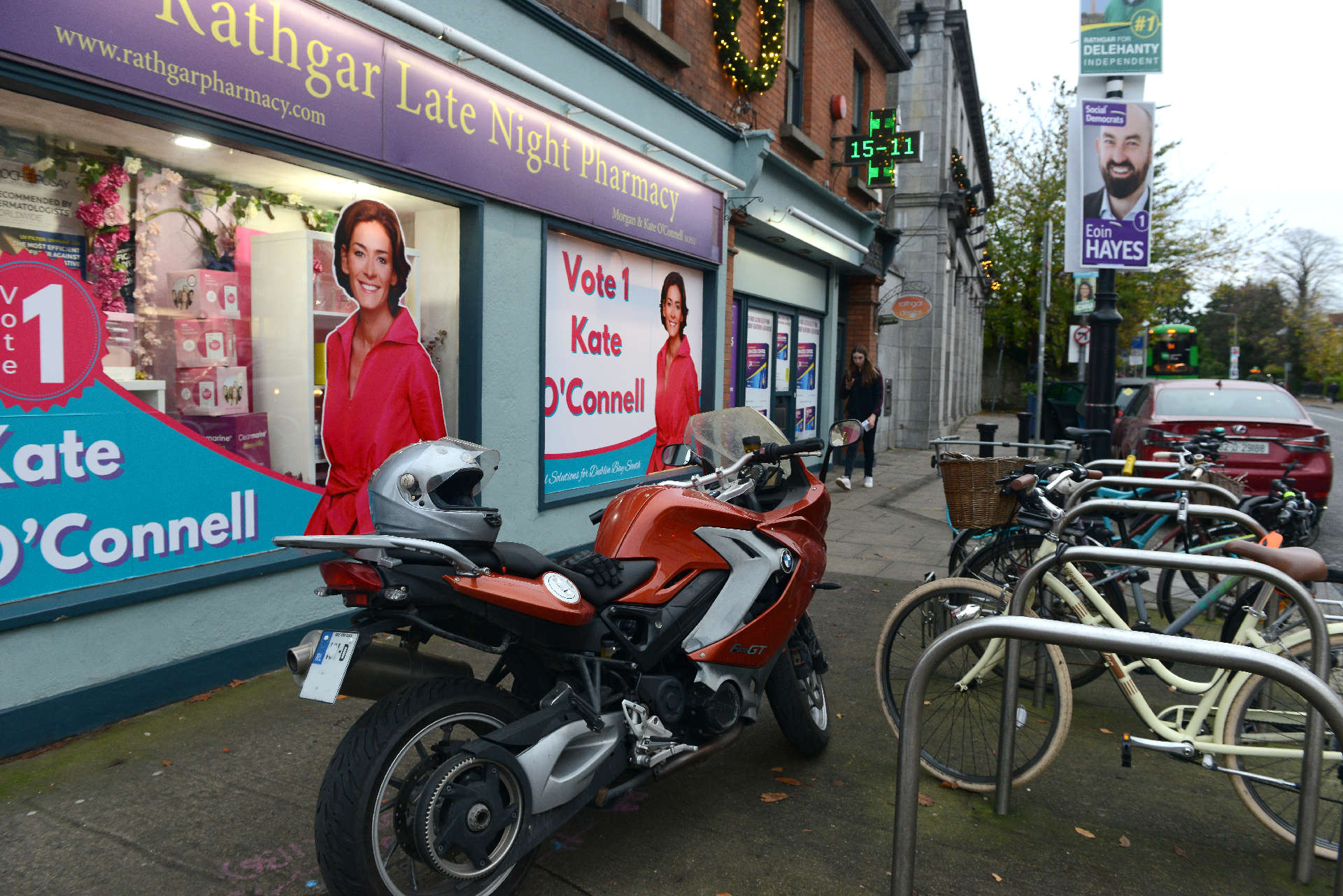
Let's go back to the question of why Ireland, out of all western European countries, has the lowest proportion of women in parliament. Reports about the statistics noted that many parties only half-heartedly added women as second candidates on their ticket to ensure minimum compliance with mandatory quotas.
Voters were not the least bit fooled by these tactics. The public felt those women were not the real candidates and didn't vote for them.
In Dublin Bay South, Kate's former party, Fine Gael, ran James Geoghegan as their first candidate. We can see that somebody had registered jamesGeoghegan.com on 12 May 2008 and jamesGeoghegan.ie on 30 January 2024. It had been registered before too. Why did nobody try to register domains for the female candidate EmmaBlain.com or EmmaBlain.ie? Why does it come down to a rival candidate from the Irish diaspora, an Australian, to take care of gender balance in domain name registration?
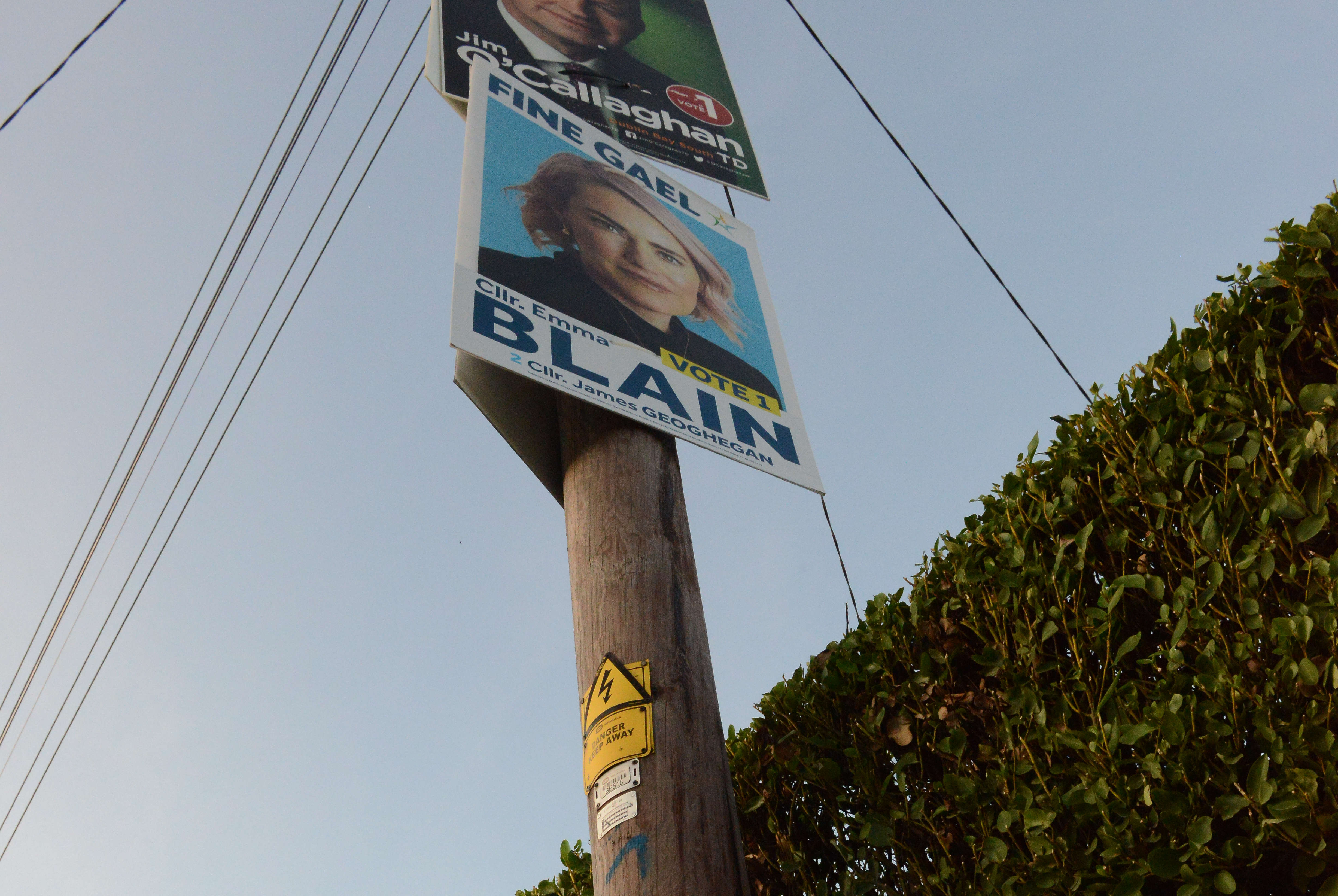
Does it matter anway? In fact, maybe it does.
We can explore the flow or preference transfers using the web site of Ireland's national broadcaster, RTE.
Looking at the results from Count 7 we can see that the successful candidate, Eoin Hayes was on 4,724 votes while Emma Blain was on 4,711 votes. The 13 vote margin between these two candidates was razor thin at that point. Would the possession of a domain name give Emma an extra 13 votes? We can never be completely sure but it is not out of the realm of possibility.
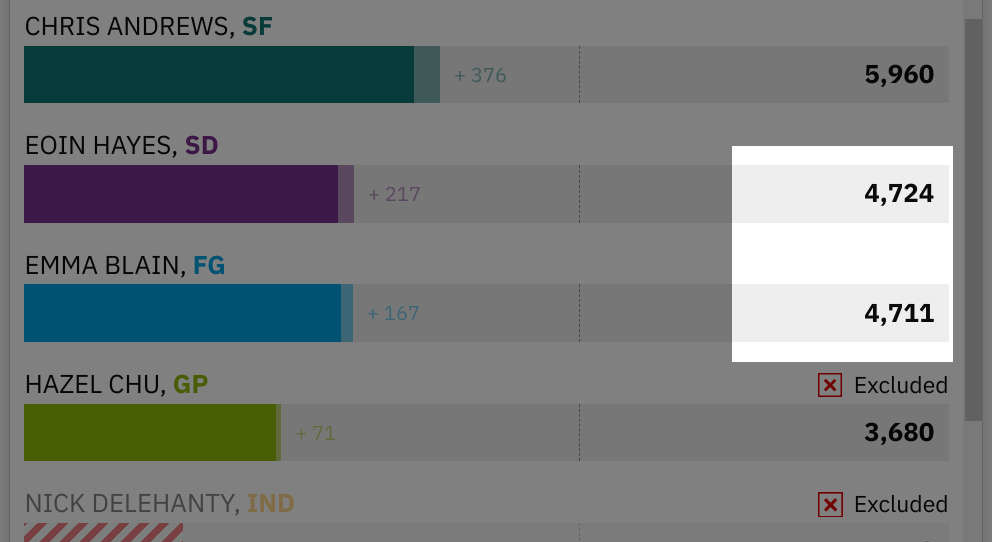
In fact, many little things add up to make the difference between winning or losing the last seat in such a contest. Being a member of a political party often gives an advantage although there are some independent candidates who prevail from time to time.
Consider the case of Australian fascist Pauline Hanson. She was a candidate for a mainstream political party in 1996. The party changed their mind a few days before the voting day. The ballot papers had already been printed and the voters saw the name of the party and the party logo together with Hanson's name on the ballot paper. She was elected and formed her own party.
This is the day Hanson wore a burka into the senate:
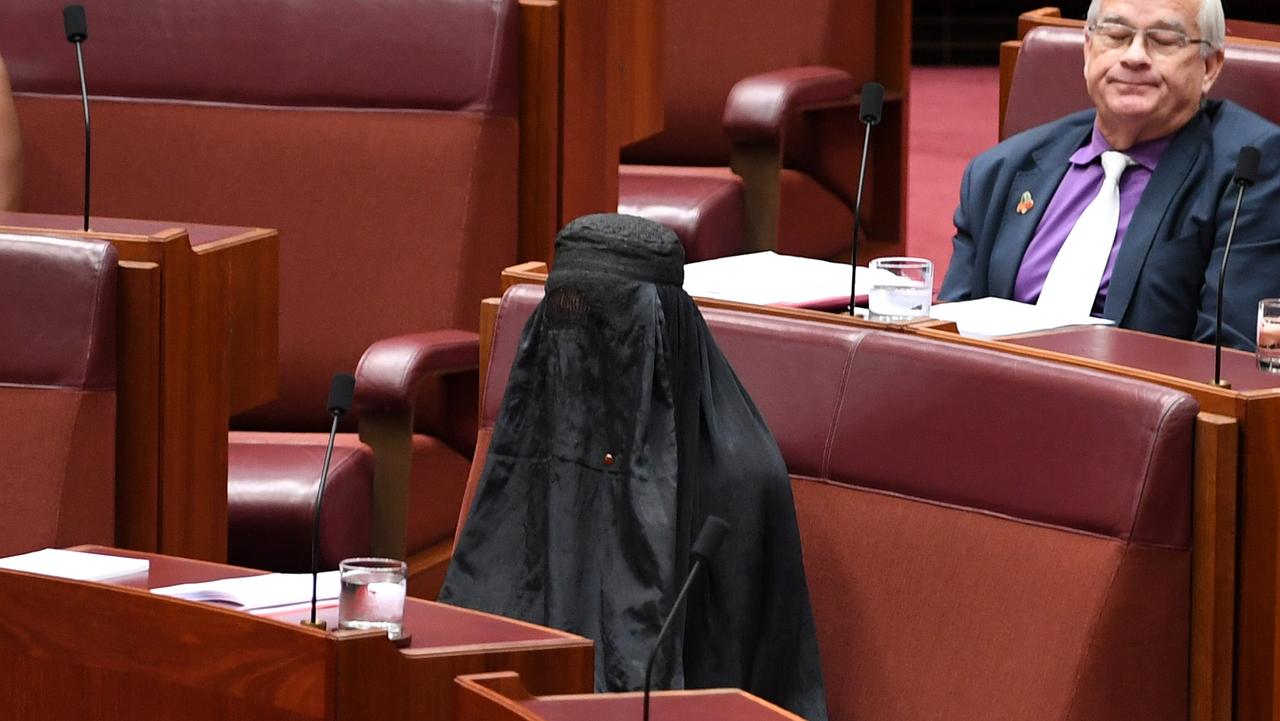
When Senator Payman defied the Australian Labor Party, the party went even further. They told her that she had won the seat with their help and they very publicly put pressure on her to completely resign from the Senate if she was not willing to behave obediently and vote as the Prime Minister told her to.
Here is that photo of Senator Payman, alongside David Pocock, crossing the floor of the Senate to vote against the government on the middle east conflict:
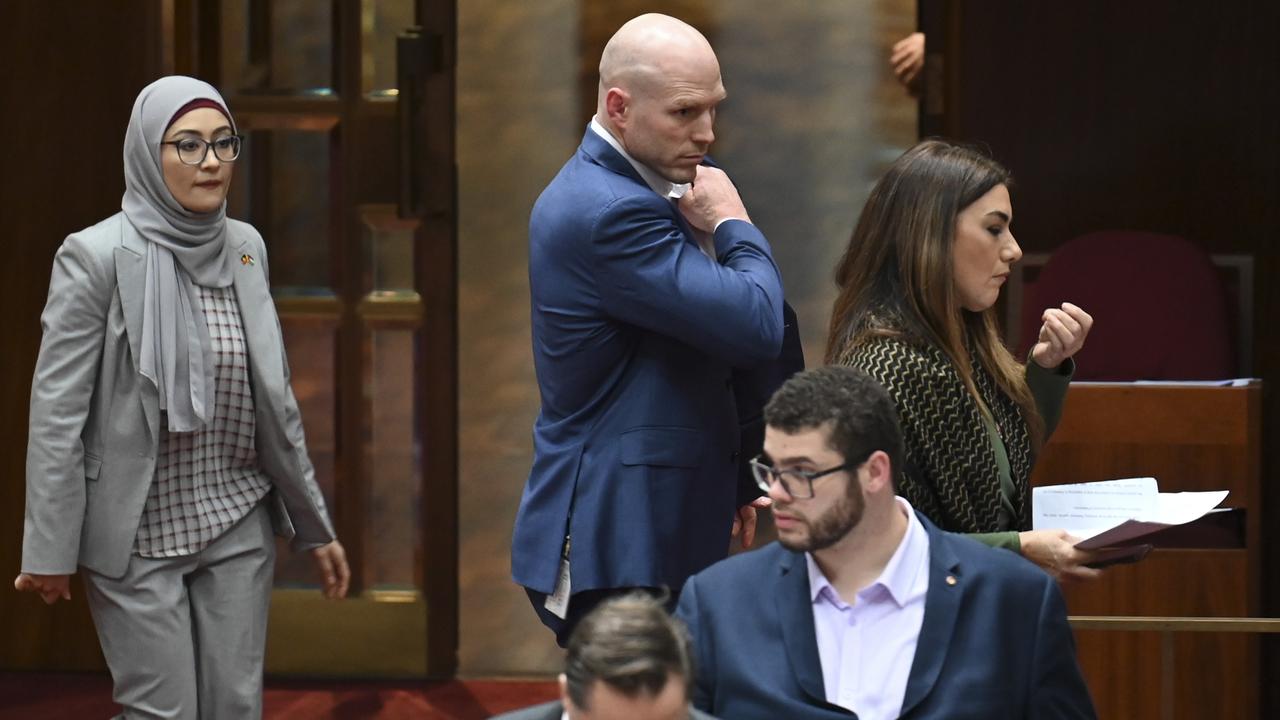
Senator Payman is not under any obligation to resign and give the seat to somebody else from the party. Nonetheless, when Kate O'Connell decided to run against her former party as an independent, it was interesting to spot the Lord Mayor of Dublin, who was also a candidate in the national election, personally visiting Kate's neighbors to ask for their votes. As in Australia, the political parties feel a sense of ownership over their candidates. Party volunteers had previously worked to get O'Connell elected in 2016. O'Connell had built a public profile for herself as a member of the party. The party may feel irritated that she can now take that public profile away with her and use it to compete against their candidate, just as Senator Payman has been able to keep her seat in the Senate and vote based on her conscience and the needs of her supporters.
Here are the photos of James Geoghegan, Lord Mayor of Dublin, subsequently elected to the Dáil, personally canvassing neighbors of Kate O'Connell in Terenure Road East:
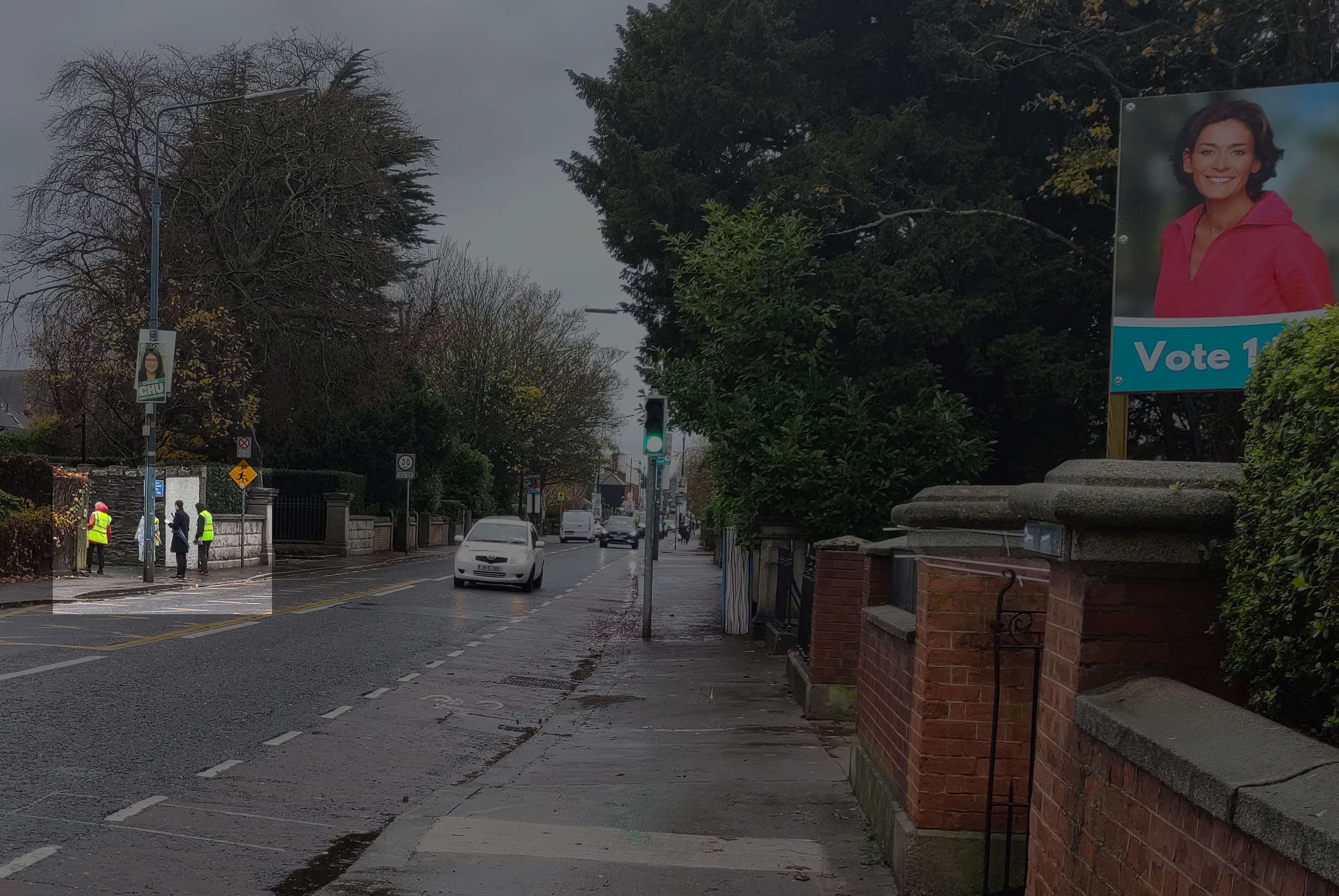
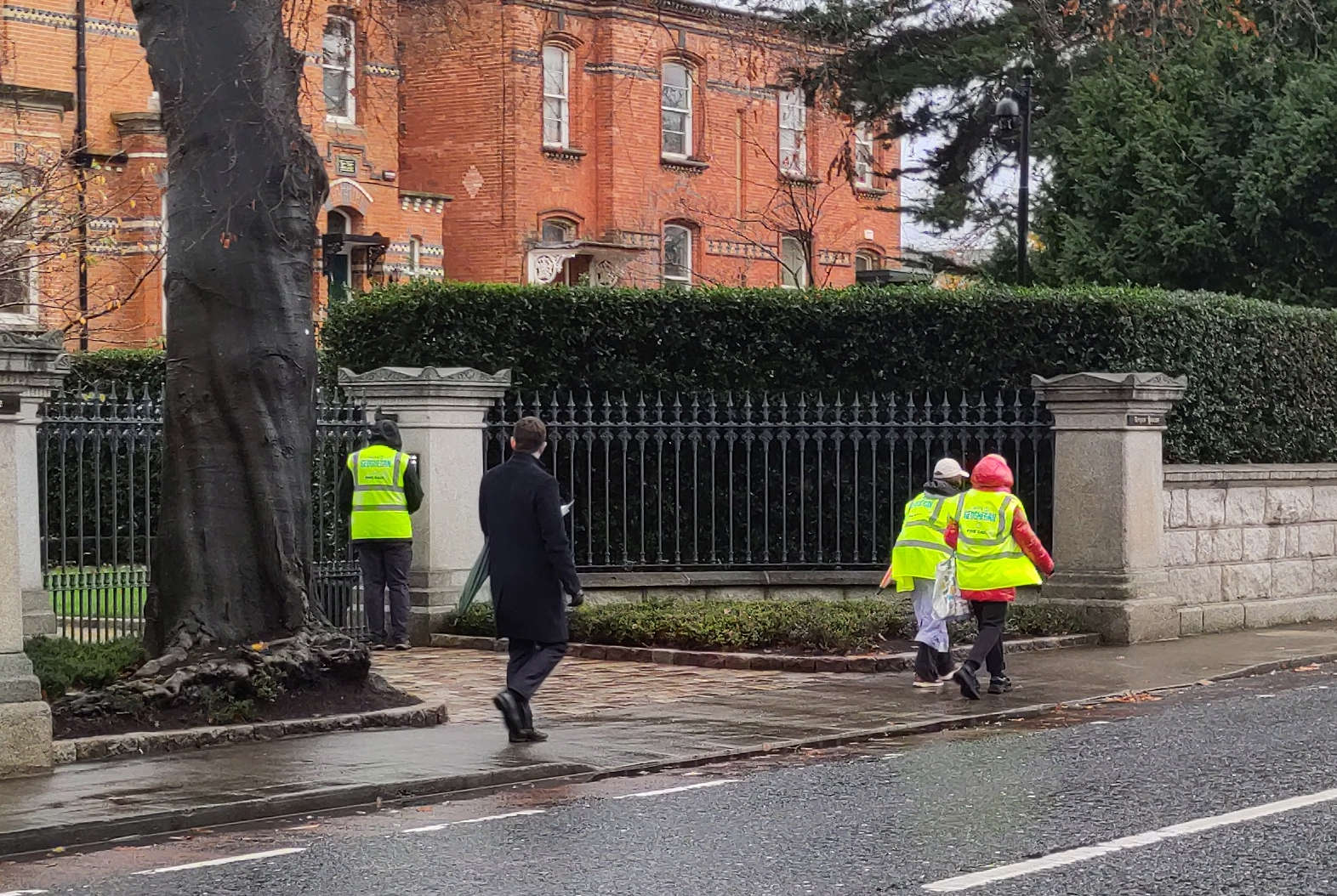
Political parties have no way to claim back the previous expenditures made supporting a candidate who quits. They are not keen for candidates who do this to set an example that may inspire other people to quit in future. It seems they will go out of their way to put pressure on candidates who disagree or leave the party, even more so than the effort they put into fighting other rival parties.
After the election of Donald Trump, people were seen displaying "Women are Property" placards in universities and other environments. When we see political parties running their female candidate for the second or third position on the ballot, are they simply using those women as a gimmick? Do they have rights over those women in the unlikely event that they win?
Here is the image from Texas State University at San Marcos:
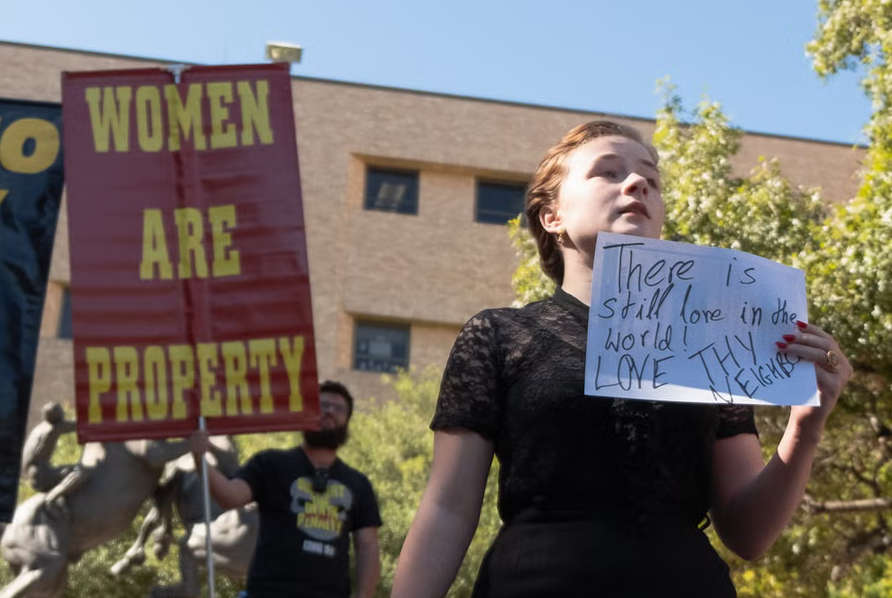
Are female candidates the property of their political parties or are they free to nominate, speak and vote as they please?
Read more about the Outreachy program whereby women are paid to be indoctrinated into open source software groups.